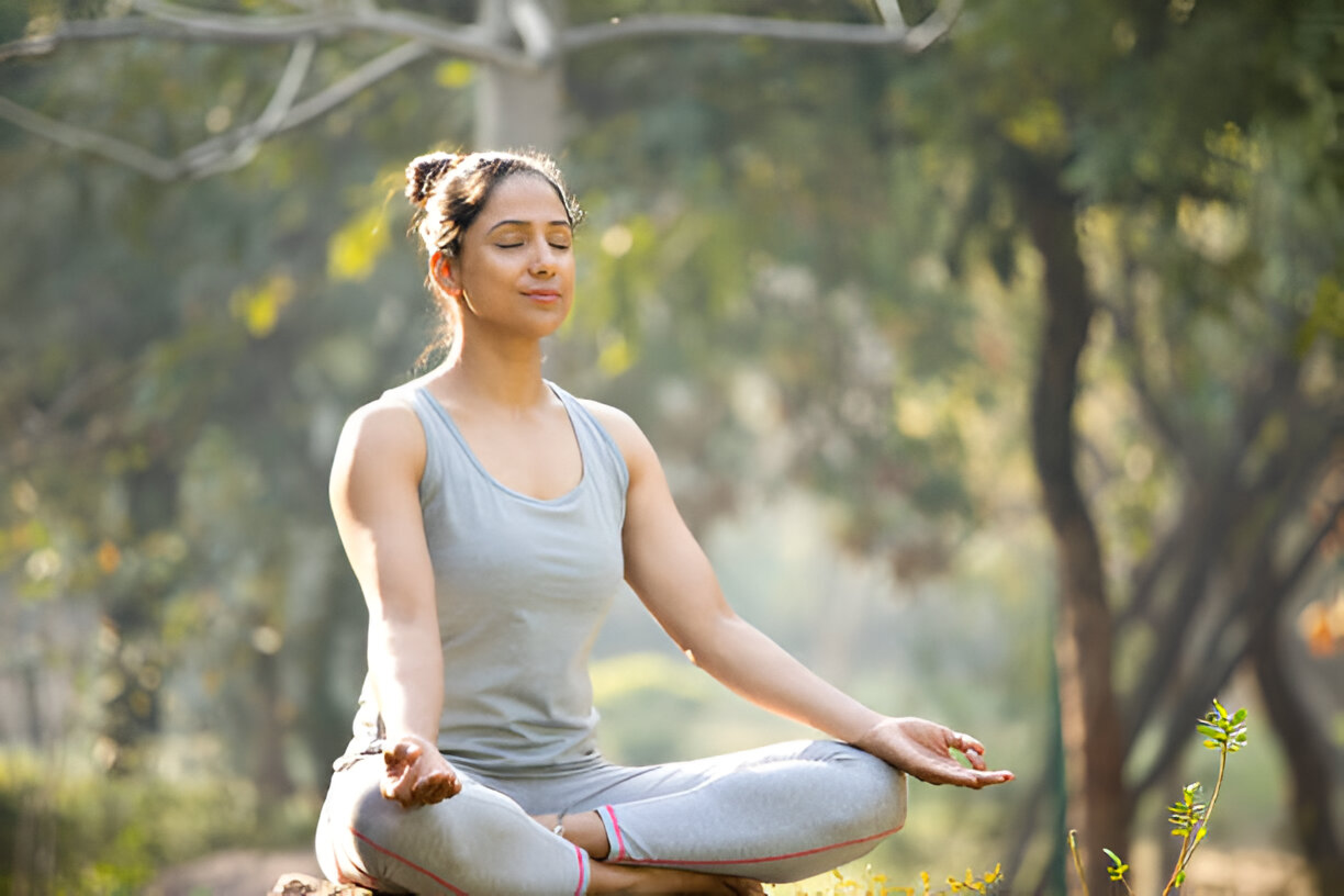
Menopause is a natural transition in a woman’s life, marking the end of her reproductive years. While it is a normal phase, the symptoms associated with menopause can be challenging.
Hot flashes, mood swings, sleep disturbances, and hormonal imbalances can affect overall well-being.
Fortunately, yoga and meditation offer a holistic approach to managing these symptoms, promoting physical, mental, and emotional health.
Understanding the Stages of Menopause
Menopause occurs in different stages, each with its own set of challenges. The Stages of Menopause include perimenopause, menopause, and postmenopause.
- Perimenopause is the transitional phase leading up to menopause, where hormonal fluctuations cause irregular periods, mood swings, and night sweats.
- Menopause is diagnosed after a woman has gone 12 consecutive months without a menstrual cycle. Symptoms such as hot flashes, vaginal dryness, and sleep disturbances are common.
- Postmenopause follows menopause and continues for the rest of a woman’s life. While many symptoms subside, lower estrogen levels can increase the risk of osteoporosis and heart disease.
The Role of Yoga in Menopause Relief
Yoga is an ancient practice that combines movement, breath control, and mindfulness. It can be particularly beneficial for menopausal women by addressing physical discomfort, stress, and hormonal imbalances. Here’s how yoga helps:
1. Reducing Stress and Anxiety
Menopause brings significant hormonal changes that can increase anxiety and irritability. Practicing yoga helps calm the nervous system, reducing cortisol levels and promoting relaxation.
Restorative yoga poses like Child’s Pose (Balasana) and Legs-Up-The-Wall (Viparita Karani) can provide immediate relief from stress and anxiety.
2. Managing Hot Flashes and Night Sweats
Certain yoga poses improve circulation and help regulate body temperature. Cooling postures, such as Seated Forward Bend (Paschimottanasana) and Reclining Butterfly (Supta Baddha Konasana), can be effective in managing hot flashes.
3. Enhancing Sleep Quality
Insomnia is a common complaint during menopause. Yoga nidra, a deep relaxation practice, and gentle stretching before bedtime can promote better sleep. Corpse Pose (Savasana) and deep breathing techniques are particularly effective.
4. Improving Bone Health
With declining estrogen levels, postmenopausal women are at higher risk of osteoporosis. Weight-bearing yoga poses such as Tree Pose (Vrikshasana) and Warrior Poses (Virabhadrasana I and II) strengthen bones and improve balance, reducing the risk of fractures.
Meditation: A Mindful Approach to Menopause
Meditation is another powerful tool for navigating menopause with ease. Regular meditation helps manage mood swings, enhances emotional resilience, and improves cognitive function.
1. Mindfulness Meditation
Mindfulness encourages staying present and accepting bodily changes without judgment. It can help manage anxiety and depression by fostering a sense of inner peace.
2. Guided Meditation for Relaxation
Listening to guided meditation specifically designed for menopause can help release tension and improve sleep quality.
3. Breathing Techniques (Pranayama)
Controlled breathing techniques like Alternate Nostril Breathing (Nadi Shodhana) and Cooling Breath (Sheetali Pranayama) can help reduce hot flashes and promote relaxation.
Supporting Hormonal Balance with Supplements
While yoga and meditation provide significant relief, incorporating Supplements For Women’s Hormone Health can further enhance well-being. Some beneficial supplements include:
- Black Cohosh: Known for reducing hot flashes and night sweats.
- Maca Root: Helps balance hormones and improve energy levels.
- Vitamin D and Calcium: Essential for bone health.
- Omega-3 Fatty Acids: Support heart health and reduce inflammation.
For those experiencing PMS treatment options, similar supplements can be effective in alleviating premenstrual symptoms, ensuring smoother hormonal transitions.
Yoga and Supplements for PMS
Women in perimenopause may also experience symptoms similar to PMS. To manage these, a combination of yoga, meditation, and supplements for PMS can be beneficial. Yoga postures such as Cat-Cow Stretch (Marjaryasana-Bitilasana) and Supine Twist (Supta Matsyendrasana) help relieve bloating and cramps, while magnesium and evening primrose oil supplements support hormonal balance.
Conclusion
Menopause is a transformative journey, and while it comes with challenges, it also presents an opportunity to embrace self-care.
Yoga and meditation offer a gentle, effective approach to managing menopausal symptoms, while Supplements For Women’s Hormone Health and supplements for PMS provide additional support.
By incorporating these holistic practices into daily life, women can navigate menopause with grace, vitality, and peace of mind.